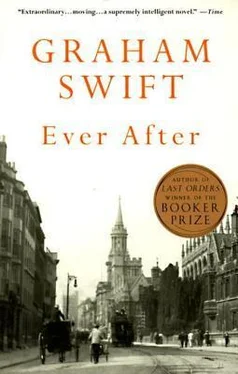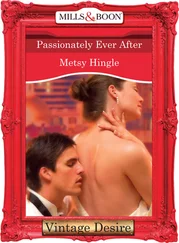Sam’s death, leaving me in this utterly bogus position, with the duty of being a living testimony to his noble public gesture, was like the closing of a trap. “One day, pal, you’ll get the money, I’ll see that you get the money!” This was how he threatened me when I went my own proud, penniless way, years ago — as if money were a penalty, an inescapable second-best.
You see, I think I found the real stuff, the true, real stuff. Now it seems, in this new life, I am turned to plastic. I am born again in plastic.
Four o’clock. Chimes float gently over the soft, historic air. What benign incarceration! What beguiling obsolescence! What agreeable trappings in which not to know who you are. The contemplative life! Sometimes even the most disgruntled inmate or sceptical visitor will be touched by a sentiment that is more than just picturesque nostalgia. Twilights full of bells and the pad of feet on old stones. Lights in study windows. Arches and towers. The whole absurd but cherished edifice rising like some fantastical lantern out of the miasmal Fens and out of the darkness of dark ages. The illusion of the illusion. It is civilization that we are talking about, that we are saving, we dotty dons.
Here, in our exclusive asylum.
When I emerged from the hospital, a fully reconditioned if fragile specimen, a period of convalescence was ordained. What better convalescent home than the old College itself? With its immured peace, its quiet lawns and its long experience of catering to the frailties and follies of learning. It was the long vacation. The long vacation, indeed. I was considerately and spitefully relieved of my scant college duties. A mere charge to its budget. A mere token of a Fellow.
And so I sit in these college gardens, under the shade of an Indian bean tree (a fine, mature example), trying to recover my substance. The weather is warm and settled. All the tranquil delights of a lovingly tended garden in high summer greet my eyes. The gardeners give me a wide, respectful berth. It is not quite a case of the Bath chair and the plaid rug. I can make my own way here from my rooms. On my knees is an inverted wooden tray and on it this notepad.
The gardens lie separate from the college buildings, across the river and, happily, some distance from it. At this time of the year, in weather like this, the river is a mêlée of mismanaged punts, splashes and squeals, with all the gentle charm of a wet T-shirt competition. Even here, in my arbour, the occasional scream or cackle of laughter reaches me; and more adventurous tourists, taking the path from the bridge, through the avenue of limes, and stopping at the gap in the high hedge and the little gate with its discreet, white-on-black sign, “Fellows Only,” might even be able to observe me, across the lawn. Look, they must think, like visitors at a zoo, pausing by some cage of shy rarities, there is one of them . And no doubt, seeing me scribble at this notepad, they take me to be immersed in some unfathomable and abstruse research.
But aren’t I?
Why should I resent my situation? I am restored to life. The sun shines through a punkah of green, tender leaves. Life! Life! Does it matter, so long as you breathe, who the hell you are? Or where you are? Or what you remember? Or what you miss? Why should I hate the man — who is dead anyway, and whom I liked —who has provided me with all this? Who has taken away from me — good God, how life can change, how everything can change in the space of less than two years — all worldly cares? But I have not told you yet the nub of my hatred, the nub of my forty years’ vicarious habitation of Elsinore as my second home. There is nothing worse than Revenge Refuted. You see, I thought Sam killed my father. So to speak. But now I know he didn’t. My father killed my father. And this in more ways than one.
When I try to remember the glorious, the marvellous, the lost and luminous city of Paris, I find it hard to separate the city that exists in the mind, that existed even then, perhaps, mainly in my mind, from the actual city whose streets I once trod and which is now older by some forty years. I have never gone back. I never went there with Ruth — because of the memories — though I went to most places with Ruth, and all couples, they say, should go to Paris. Perhaps now I should return — now I am this free, this disengaged man, and now I know, in any case, that certain things were not as they once seemed.
We see what we choose to see, we see what we think we see. In Paris my mother first took me to the opera. A matinée of La Bohème —a Parisian tale. And there, in Act One, behind Rodolfo’s garret window, and again, in Act Four, as poor Mimi lay melodiously dying, was a painted vista of Paris rooftops just like any you could actually see, and perhaps still can, around Sacré Coeur or Montparnasse. It had never struck me before that Reality and Romance could so poignantly collude with each other; so that ever afterwards I saw Paris as a palpable network of “scenes,” down to the subtle lighting of a smoky-blue winter’s morning or the blush of a spring evening, the incarnation of something already imagined. It scarcely occurred to me — my imagination did not go in this simpler direction — that this same Paris which we came to in November 1945 had been occupied not so long ago by Hitler’s soldiery and that our very apartment in the Rue de Bellechasse, in the heart of the ministerial quarter, had perhaps been the temporary home — as it was our temporary home — of some official of the Reich.
My mother (whom I would definitely not, in the final analysis, call Romantic) must have been moved by the same ambiguous, uncanny reality as I, because I can recall her, only days after our arrival, saying in a rapturous if half-startled voice, “Look, darling, this is Paris, darling” (I knew it was Paris, we were in Paris, we were strolling down the Champs Élysées), “isn’t it divine?” And that word, through the refining filter of Paris, is all I need to conjure up my mother. My mother that was (death number two): as she flung the Armstrong-Siddeley through the flashing, leafy lanes of Berkshire (me, a gaping, gleeful, infant passenger beside her); as she licked from her lips the residue of some oozing cream cake (a sweet tooth which only slowly taxed her figure); as she held up to herself, like some flimsy, snatched-up dancing partner, a newly bought frock: “Divine, darling! Isn’t it just divine ?”
I cannot summon my father so easily. I have no touchstone. Perhaps because of what happened. Perhaps because, in any case (sons need time — they truly need time — to get to know their fathers), he was always a distant and sombre figure, outshone, first to his delight, then to his consternation, by my mother’s heedless brightness. Yet I remember him once attempting to draw near — or so I think was his intention. It was in that same Paris apartment, on a cold, windy evening, with winter still at war with spring, the lights on outside and a fire burning hearteningly in the massive, grey marble fireplace. He was standing by the fire, one elbow on the mantelpiece, in full evening rig, waiting for my mother before they left for another of his official functions.
“The thing is,” he suddenly said, slowly, with an air of weighed wisdom and of speaking aloud some uncontainable thought, “when you are out on an adventure, you want to be at home by the fire, and when you are at home by the fire, you want to be out on an adventure.”
I wish I knew what it was I had said — if anything — that elicited that unusual pithiness. And I wish I had known then, while the fire flickered and the wind scraped at the window, what should have been the proper response. I was nine. There he was, in all his pride, fifty-five years old — some twenty years older than my mother, medals on chest, cigar lit, Scotch and soda — a large one — poured. Some question of mine? Or some impulse in his own mind that seemed to raise the whole, daunting phenomenon of his soldierly past and his mysterious present duties, his aura of belonging to a world of great, glorious (but peculiarly awkward) things?
Читать дальше












